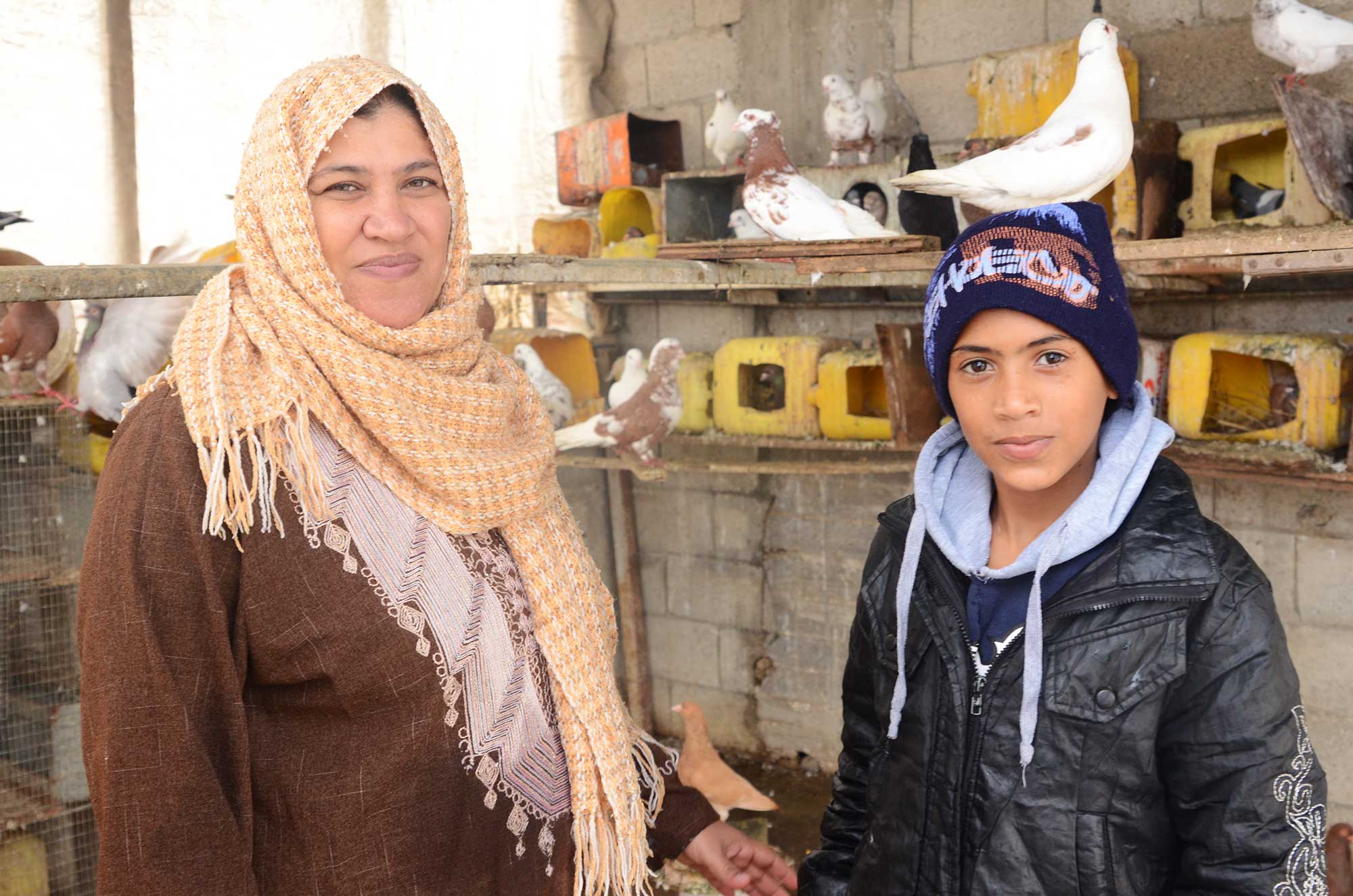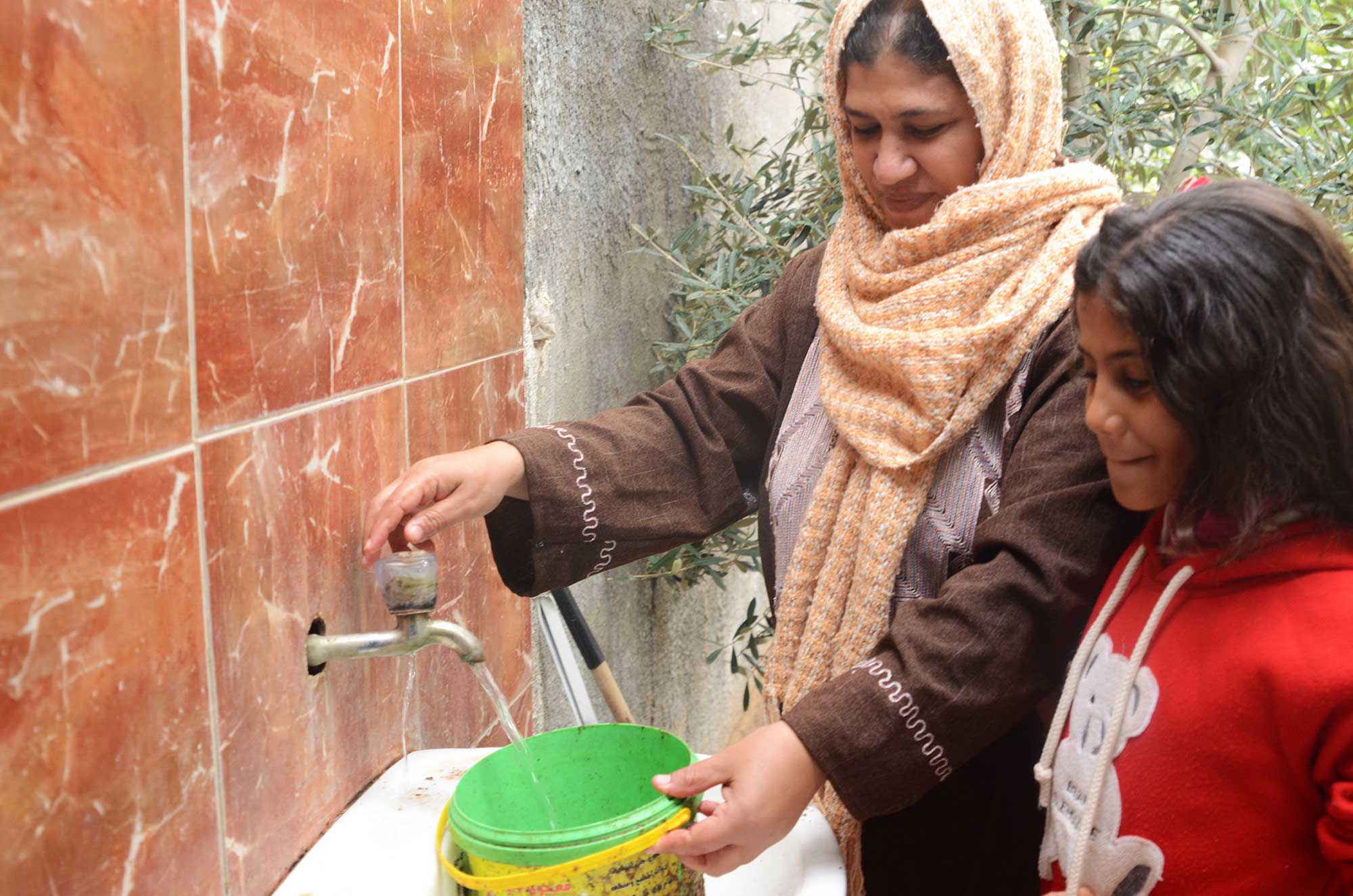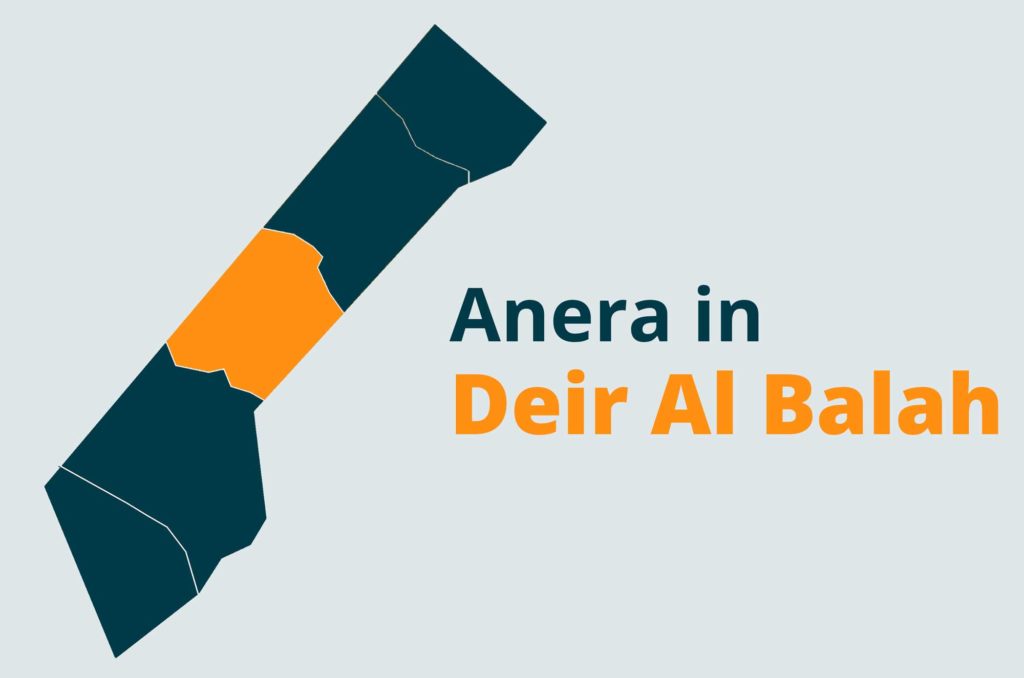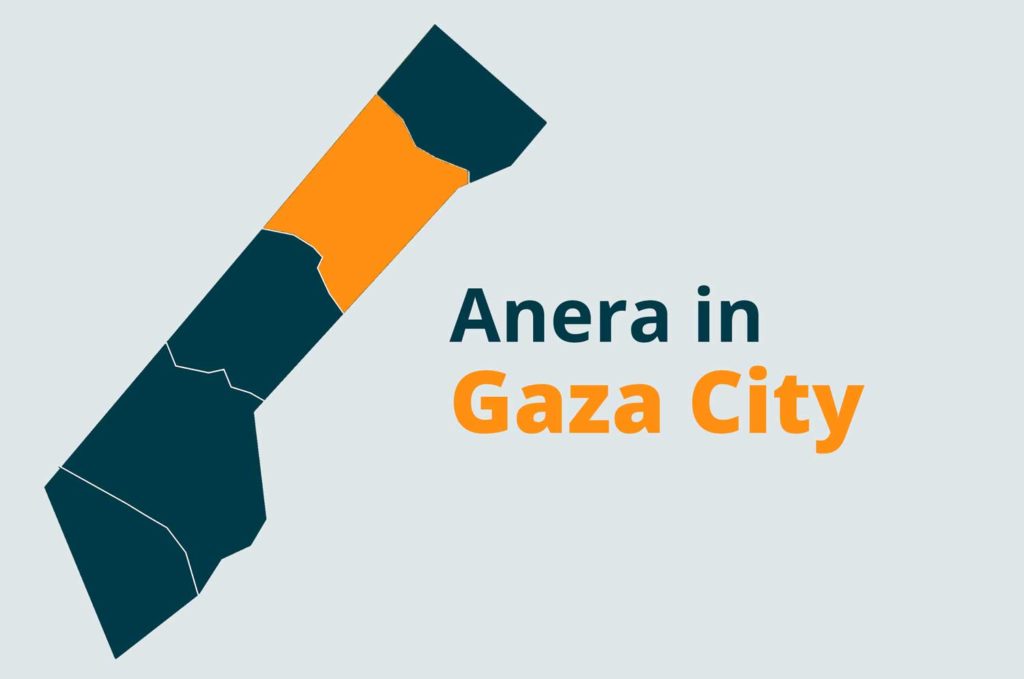Feb, 2016
In the backyard of her home in Rafah, Gaza, Hanan Abu Sninah is busy tending dozens of pigeons and chickens, which she raises to sell as meat. She started the small business six years ago out of necessity.
“When life’s harshness overwhelms you, you still have to think about providing an income for your family,” explains Hanan.
However, the difficulty of accessing a reliable Gaza water network created a big problem for Hanan.
“We struggled with water scarcity,” she says. “It pained me when my livestock needed water just as I was running out of it.” Hanan would call tankered water suppliers, but due to her location in a secluded neighborhood, the suppliers rarely showed up.


We would go 6 days and more without a drop of water.
When the suppliers did show up, she’d have to pay about 16 shekels (around $4.20) each time she filled her tank. This was a big sum of money that dug into the limited profits from Hanan’s small business. Sometimes, she would walk long distances to fetch water from a water station, the last thing she wanted to do under the scorching sun or in the freezing rain. Eventually, Hanan had to downsize her business and sell her goats and sheep. “I wasn’t able to provide water. I had no other option,” she explains.


Water Connection for Rafah Gives Hanan’s Family Hope
Ismail squeezes into the chicken coop carrying a bucket of water as Hanan explains how her life has changed with the new water network that Anera recently finished implementing.
“I used to spend a big chunk of my profits on purchasing domestic water for daily household chores like cooking and cleaning, as well as water for my livestock,” Hanan says. “My two children, Ismail and Mona, helped me as much as they could,” she adds. But water in Gaza neighborhoods was so scarce that there was not much they could do.
Now, the money she saves can be reinvested in her business, buying feed for the animals. She also has a small plot of land where she now grows fruits and vegetables to secure an additional source of agricultural income for her family. She irrigates it using a water-dripping system.
“I plan to bring back the goats and sheep I sold and expand the business again,” she says with a smile.


With USAID funding under Anera’s Palestinian Community Infrastructure Development (PCID) Program, 50,000 residents in the Jeneina, Mashro’a, Barazil and El-Salam areas of Rafah are now connected to a reliable source of water. Anera replaced and repaired the deteriorated and damaged water networks, reducing the water losses and improving the overall water situation and quality of life for Rafah’s residents.





